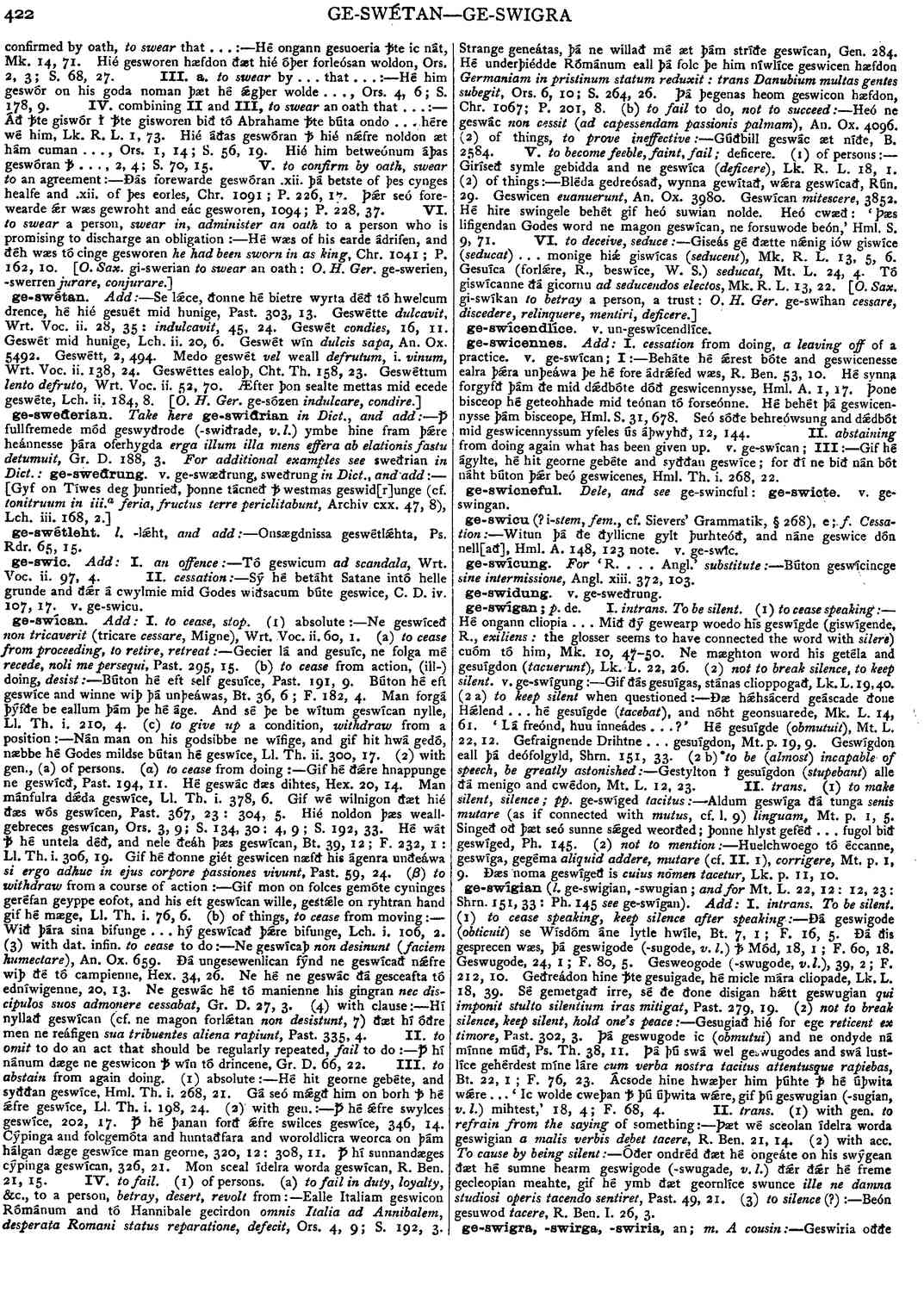ge-swígan
- verb [ weak ]
-
Hé ongann cliopia . . . Mið ðý gewearp woedo his geswígde (giswígende, R.,
exiliens : the glosser seems to have connected the word with silere )
cuóm tó him,- Mk. 10, 47-50.
-
Ne mæghton word his getéla and gesuígdon
(tacuerunt),
- Lk. L. 22, 26.
-
Gif ðás gesuígas, stánas clioppogað, Lk. L. 19, 40. (2 a)
to keep silent when questioned :-- Ðæ hǽhsácerd geáscade ðone Hǽlend . . . hé gesulgde (tacebat), and nóht geonsuarede, Mk. L. 14, 61. ' Lá freónd, huu inneádes. . . ?' Hé gesuígde (obmutait ),
- Mt. L. 22, 12.
-
Gefraignende Drihtne . . . gesuígdon,
- Mt. p. 19, 9.
-
Geswígdon eall þá deófolgyld, Shrn. 151, 33. (2b) to be (almost) incapable of speech, be greatly astonished :-- Gestylton ł gesuígdon
(stupebant)
alle ðá menigo and cwédon,- Mt. L. 12, 23.
-
-Aldum geswíga ðá tunga
senis mutare (as if connected with mutus, cf. l. 9) linguam.
- Mt. p. 1, 5.
-
Singeð oð þæt seó sunne sǽged weorðed; þonne hlyst geféð . . . fugol bið geswíged,
- Ph. 145.
-
Huelchwoego tó éccanne, geswíga, gegéma aliquid addere, mutare (cf. II. 1),
corrigere,
- Mt. p. 1. 9.
-
Ðæs noma geswígeð is
cuius nómen tacetur,
- Lk. p. 11, 10.
Bosworth, Joseph. “ge-swígan.” In An Anglo-Saxon Dictionary Online, edited by Thomas Northcote Toller, Christ Sean, and Ondřej Tichy. Prague: Faculty of Arts, Charles University, 2014. https://bosworthtoller.com/49925.
Checked: 0